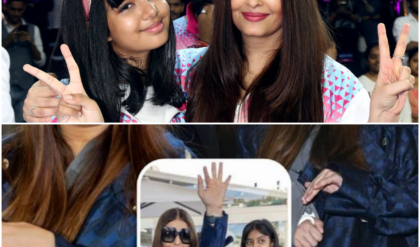Ayushmann Khurrana has emerged as one of the most versatile and innovative actors in Bollywood, revolutionizing the landscape of Indian cinema with his unique approach to storytelling and character selection. Since his debut, Ayushmann has consistently challenged conventional norms, opting for roles that not only entertain but also resonate with contemporary societal issues. His journey from a television host to a celebrated actor exemplifies the transformative power of talent and determination in the highly competitive world of Bollywood.
Born on September 14, 1984, in Chandigarh, Ayushmann’s early life was steeped in the arts. He grew up in a family that appreciated creativity, which nurtured his passion for performing arts. Ayushmann studied theatre at Panjab University and later gained fame as a contestant on the reality show “MTV Roadies.” His charismatic personality and ability to connect with the audience quickly made him a household name. However, it was his decision to transition into acting that truly set the stage for his illustrious career ahead.
Ayushmann made his film debut in 2012 with “Vicky Donor,” a romantic comedy that tackled the taboo subject of sperm donation. This film marked a significant turning point in Bollywood, as it was one of the first mainstream films to address such a sensitive topic with humor and sensitivity. Ayushmann’s portrayal of Vicky, a young man who becomes a sperm donor, was both relatable and endearing. The film was a commercial success and established him as a promising talent in the industry. More importantly, it set a precedent for future films to explore unconventional themes, showcasing Ayushmann’s potential to break the mold of Bollywood.
Following the success of “Vicky Donor,” Ayushmann continued to choose roles that defied traditional storytelling norms. His filmography reads like a manifesto for progressive cinema, with titles like “Dum Laga Ke Haisha,” “Shubh Mangal Saavdhan,” and “Badhaai Ho,” each tackling societal issues with humor and heart. In “Dum Laga Ke Haisha,” he portrayed a man who falls in love with his overweight wife, challenging beauty standards and societal expectations regarding body image. The film was not only a commercial hit but also sparked conversations about love, acceptance, and the importance of inner beauty.
“Shubh Mangal Saavdhan,” another groundbreaking film, dealt with erectile dysfunction, a topic rarely discussed in Indian cinema. Ayushmann’s performance was both sensitive and humorous, showcasing his ability to handle complex subjects with finesse. The film’s success further solidified his reputation as an actor willing to take risks and push boundaries. By choosing such unconventional narratives, Ayushmann has made significant contributions to the ongoing dialogue about pressing social issues, encouraging audiences to confront their biases and preconceptions.
One of Ayushmann’s most notable contributions to cinema is his ability to portray characters that are relatable and grounded. Unlike many of his contemporaries who often play larger-than-life roles, Ayushmann excels in bringing authenticity to his characters, making them resonate with audiences across demographics. His performances are marked by a refreshing blend of humor, vulnerability, and depth, allowing viewers to see themselves in the characters he portrays. This relatability has endeared him to fans and critics alike, establishing him as a leading figure in contemporary Bollywood.
In addition to his acting prowess, Ayushmann is also a talented singer and musician. His background in music has allowed him to infuse his films with soulful melodies that complement the narratives. Songs like “Pani Da Rang” from “Vicky Donor” and “Nazm Nazm” from “Bareilly Ki Barfi” showcase his vocal skills and add an extra layer of emotion to his films. Ayushmann’s ability to seamlessly blend his musical talents with his acting career sets him apart from many of his peers, further establishing his multifaceted persona in the industry.
Ayushmann’s impact extends beyond his performances on screen; he has become a voice for change in Bollywood, advocating for progressive storytelling and representation. He uses his platform to raise awareness about important social issues, encouraging discussions that challenge the status quo. His commitment to portraying diverse narratives has inspired a new generation of filmmakers to explore unconventional themes, fostering a more inclusive and representative film industry.
Furthermore, Ayushmann’s success has paved the way for actors from non-traditional backgrounds to enter Bollywood. His journey from a television host to a leading actor emphasizes the idea that talent and hard work can transcend conventional barriers. He has become a role model for aspiring artists, proving that perseverance and a willingness to take risks can lead to success in an industry that is often resistant to change.
In recent years, Ayushmann has continued to expand his horizons, taking on roles that delve into deeper societal issues. Films like “Article 15,” where he portrayed a police officer confronting caste discrimination, and “Andhadhun,” a dark comedy about a blind pianist caught in a murder mystery, have showcased his versatility and commitment to meaningful storytelling. These films not only garnered critical acclaim but also sparked conversations about pressing
Watch video:
News
The Great Indian Kapil Show Season 2 Full Episode 6 Explanation | Kajol, Kriti Sanon, Shaheer
The Great Indian Kapil Show has returned with its highly anticipated Season 2, captivating audiences once again with its unique blend of comedy, celebrity interviews, and engaging skits. Episode 6 of this season featured special guests Kajol, Kriti Sanon, and…
Sonakshi Sinha gained a lot of weight for New Project in Recent Appearance at Taurani Diwali party
Sonakshi Sinha, the talented actress known for her impressive performances in Bollywood, has recently made headlines for her significant weight gain, which she attributes to her preparation for an upcoming project. Her latest appearance at the Taurani Diwali party has…
Sohail Khan’s shocking reaction on Aishwarya amid divorce rumours with Abhishek Bachchan goes viral
The Bollywood film industry is no stranger to drama, both on-screen and off. Recently, the media has been abuzz with rumors regarding Aishwarya Rai Bachchan and Abhishek Bachchan’s marriage, with speculation about a potential divorce capturing the attention of fans…
Singham angry at Bishnoi! Ajay Devgn support his best friend Salman Khan amid Lawrence warningc
The Bollywood film industry is no stranger to controversies, and the recent tensions surrounding Ajay Devgn, Salman Khan, and the infamous gangster Lawrence Bishnoi have brought the spotlight back onto the darker side of fame. Ajay Devgn, widely known for…
Shahrukh Khan shocking reaction on Aishwarya amid divorce rumours with Abhishek Bachchan goes viral
In the ever-evolving landscape of Bollywood, where personal lives often intertwine with public personas, recent developments have captivated fans and media alike. Rumors surrounding Aishwarya Rai Bachchan and Abhishek Bachchan’s marriage have resurfaced, leading to widespread speculation about a potential…
Nimrat Kaur finally Confirm her Relationship with with Abhishek Bachchan after separation with Aish
In a surprising yet anticipated turn of events, actress Nimrat Kaur has officially confirmed her relationship with Abhishek Bachchan. This revelation comes after a period of speculation and rumors that had been circulating in the media and among fans, particularly…
End of content
No more pages to load











